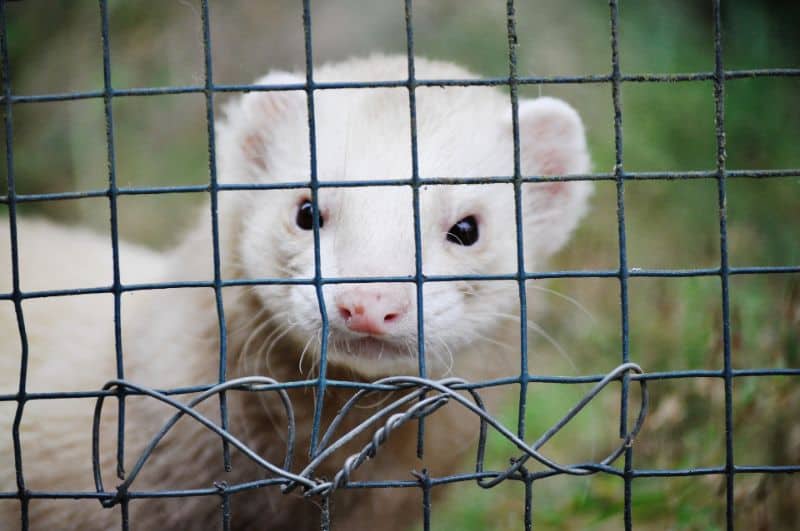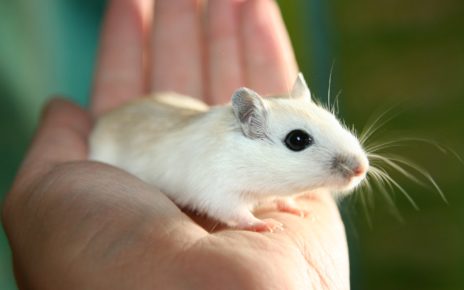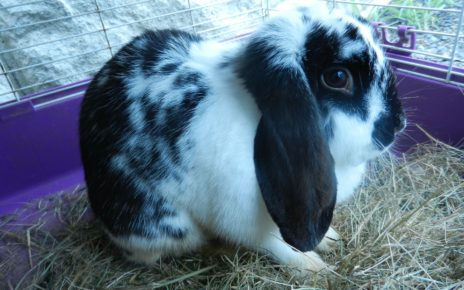If you’re a New Jersey resident considering adding a ferret to your family, you may be wondering if they’re legal in the state. The good news is that ferrets are legal in NJ, but you will still need to check with your city and counties.
In this article, we’ll tell you everything you need to know about owning a ferret in NJ. In addition, we’ll cover topics such as licensing and registration requirements and more.
So, whether you’re just doing your research or are ready to add a furry friend to your family, keep reading for all the details on owning a ferret in NJ!
Ferret Laws NJ
There is no state law restricting ferret ownership in New Jersey. However, it is always a good idea to check with your local county or city government to see if there are any specific regulations in place regarding owning a ferret.
NJ Ferret Permit
In the state of New Jersey, there are no special permits required to own a ferret. In general, ferrets are legal to keep as pets; but they might be classified as “exotic animals” and may have specific regulations governing their care.
New Jersey Exotic Animal Permit Information:
https://www.state.nj.us/dep/fgw/exotic_apps.htm
As long as you have a proper cage for your ferret and are keeping them up to date on their vaccinations, you should be able to own one without any issues.
Where To Buy a Ferret in New jersey
There are a few different places where you can buy a ferret in New Jersey. One option is to check with local rescue groups. These groups often have ferrets up for adoption, and they can be a great option if you’re looking for a low-cost pet.
Another option is to contact a local ferret breeder. This may be the best option if you’re looking for a specific type of ferret. Breeding businesses usually have a wide selection of ferrets to choose from, and they can often provide helpful information about care and diet.
Whatever option you choose, be sure to do your research and find a reputable breeder or rescue group when you’re looking to bring home a new pet.
NJ Ferret Rescue
- Concerned Ferret Owners
- Hudson Valley Ferret Rescue of NJ
- Scales and Tails
- Paws Across the Nation
- NJ Ferret Rescue & Sanctuary, Inc.
NJ Ferret Breeder
What Do You Need To Know Before Getting a Ferret as a Pet
If you’ve been considering adding a ferret to your family, there are a few things you should know first. Ferrets are very active animals and require a lot of space to move around. They also need to be able to socialize with other ferrets, or they can become bored and depressed.
Additionally, ferrets are known for being escape artists, so you’ll need to make sure their enclosure is secure. Finally, ferrets have a very high metabolism and require a diet that is high in protein and fat.
If you’re prepared to provide a ferret with the space, socialization, and diet they need, then they can make a fun and loving addition to your home.
How To Take Care of Your Ferret
Ferrets are playful, curious creatures that make great pets. They are also relatively easy to take care of, as long as you are willing to put in a little time and effort.
The most important thing for ferret care is to provide ample opportunity for play and exercise. A ferret cage should be large enough to allow your pet to move around freely, and it should be equipped with a variety of toys and tunnels. It is also essential to give your ferret plenty of time outside of the cage to explore and play.
In addition to exercise, diet is also important for ferrets. They should have a high-quality diet that is rich in protein and fat. Ferrets also need access to clean water at all times.
Ferrets require a high-quality diet rich in protein. This can be achieved through a diet of specifically formulated ferret food or by supplementing their diet with high-quality cuts of meat.
Finally, it’s important to keep your ferret’s environment clean. This means regular cage cleaning as well as providing fresh water and food daily. By following these simple tips, you can provide your ferret with the care they need to thrive.




